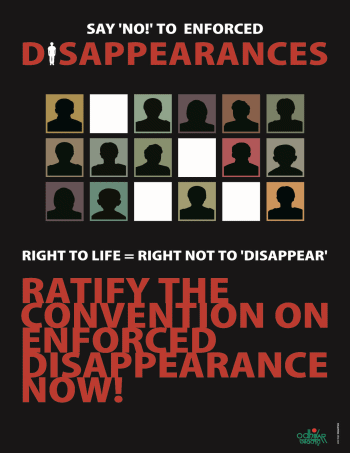26 June, is the International Day in Support of Victims of Torture. Observed globally since 1988, the day signifies solidarity with victims of torture and cruel treatment around the world. On this day, Odhikar stands in solidarity with individuals subjected to oppression, torture, and all forms of cruel, inhuman, and violent acts across the globe and their families. To mark the day, Odhikar has planned rallies, human chains, and other events, engaging local human rights defenders affiliated with Odhikar.
Since its founding on 10 October 1994, Odhikar has been actively engaged in campaigns to prevent torture, influence the adoption of relevant legislation and demand its full implementation. Incidents of torture have occurred under every administration since Bangladesh’s independence but the inhuman practice of enforced disappearances during the recently deposed Awami League regime, added to the recorded numbers. The involvement of security agencies—including the Rapid Action Battalion (RAB), police, and intelligence units—in many of these incidents of torture, enforced disappearances, and extrajudicial killings was palpable. According to data collected by Odhikar, from January 2009 to 5 August 2024, a total of 182 individuals died as a result of torture under the Awami League administration. During the tenure of the Interim Government, from 8 August 2024 to 20 June 2025, a total of 10 individuals died due to torture.
The entrenched culture of impunity for acts of torture, coupled with the failure to enforce the Torture and Custodial Death (Prevention) Act, 2013, has allowed incidents of torture and inhuman treatment in the custody of various law enforcement and intelligence agencies to persist. Political interference and a weakened criminal justice system have further deepened the crisis.
Torture and inhuman treatment in the custody of law enforcement, intelligence, and security agencies have become alarmingly routine in Bangladesh. However, accurate data on torture remains elusive, as many victims stay silent out of fear of further reprisal or abuse. Torture is frequently employed during remand to extract information, coerce false confessions, or punish individuals for dissenting views. Under the authoritarian Awami League regime, torture was widely perpetrated against opposition leaders, activists, and those holding dissenting views. While the frequency of torture has declined under the current interim government, such incidents still continue to occur.
In Bangladesh, remand has become disturbingly synonymous with torture—an entrenched practice that flagrantly violates both the Torture and Custodial Death (Prevention) Act, 2013, and Article 35(5) of the Constitution, which categorically prohibits such inhuman treatment. The United Nations Convention Against Torture affirms the absolute and non-derogable right to be free from torture—prohibiting any State from its use under any circumstance, including war, states of emergency, national security concerns, or other exceptional situations. Bangladesh became a State Party to this Convention on 5 October 1998, while expressing a reservation to Article 14(1). Furthermore, Bangladesh did not accept the authority of the Committee Against Torture under Article 22 of the Convention to receive and consider individual complaints. Although an anti-torture law has been adopted in Bangladesh, no binding measures have yet been adopted to fully implement the Convention.
Odhikar remains committed to the struggle for democratic Bangladesh, rooted in the principles of human rights and the rule of law. Odhikar urgently calls for the enforcement of Bangladesh’s anti-torture law, full compliance with the UNCAT, to which Bangladesh is a signatory, and ratification of the Convention’s Optional Protocol. Odhikar also calls on citizens to raise awareness and adopt collective actions to end the use of torture.
Odhikar presents the following recommendations to end torture:
- The Government of Bangladesh must ratify the Optional Protocol to the Convention Against Torture and uphold its commitments as a signatory of both CAT and OP-CAT, by establishing an effective national mechanism for the prevention of torture and redress for victims. The Torture and Custodial Death (Prevention) Act, 2013 must be enforced without delay. All acts of torture and repression must cease, and those responsible must be brought to justice.
- Empower the National Human Rights Commission as a truly independent entity with investigative and litigation powers, by amending the controversial National Human Rights Commission Act, to improve the human rights situation and prevent torture.
- The entrenched culture of impunity for acts of torture must be put to an end and the use and import of equipment designed for the purpose of torture must be stopped.
- The directives issued by the Supreme Court in the landmark case BLAST vs. Bangladesh (2003) must be fully implemented to prevent arbitrary arrests and torture by law enforcers – including the setting up of interrogation rooms with glass panels and video cameras and the right of the detained to have a lawyer present.
- Political influence and interference in the law enforcement and judicial process must be stopped. No obstacles should be placed to the efforts of human rights defenders engaged in raising awareness and preventing torture.
- Ensure that no statement made to a Magistrate as a result of torture is recorded as a ‘confessional statement’ and that a Magistrate refrains from sending a detained person back to remand when there are clear indications of the latter having been tortured or received cruel or inhuman treatment in custody.




